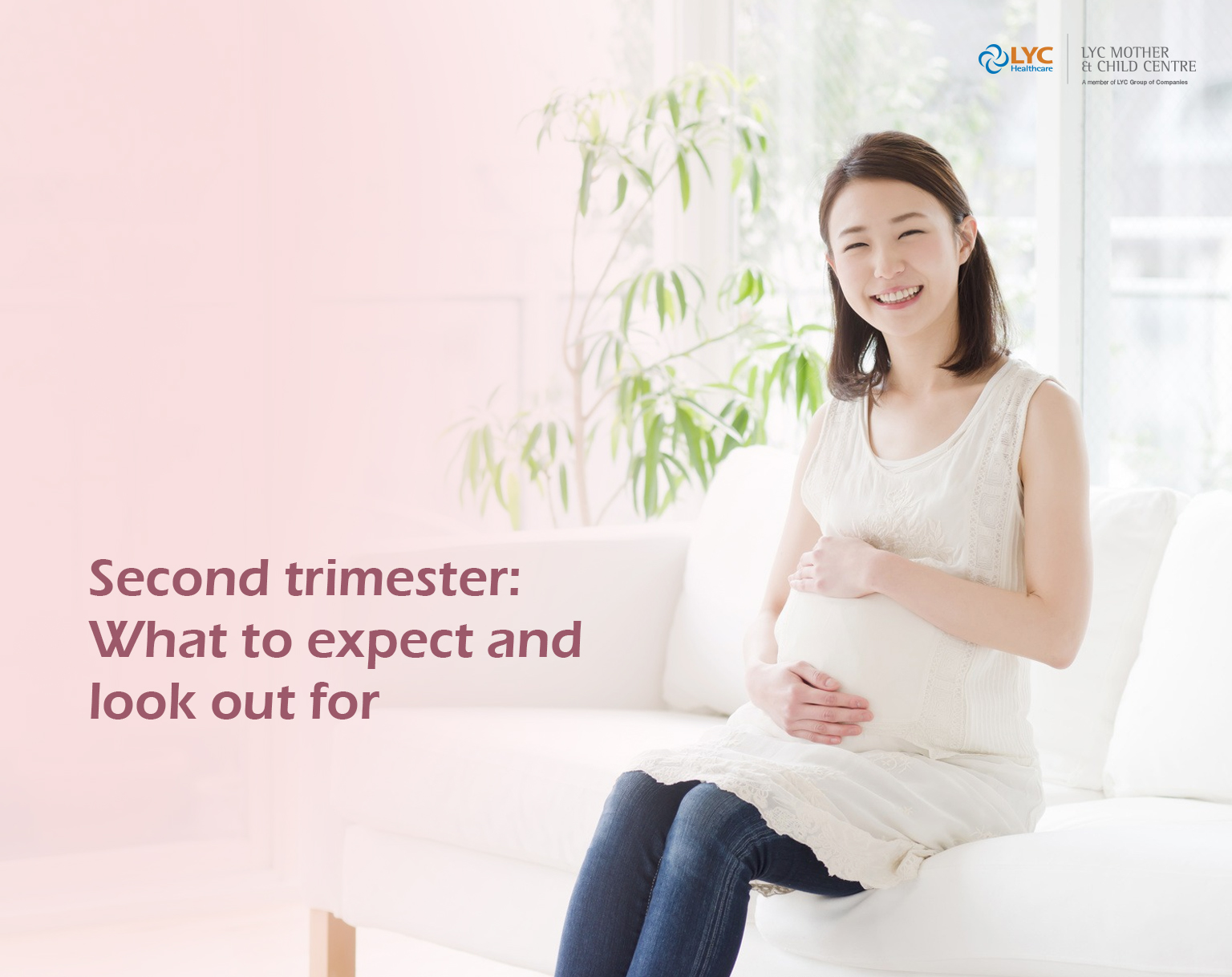
When you enter your second trimester, it means you have been pregnant for about 14 weeks. The second trimester will last from week 14 to the end of week 27.
During the second trimester, you will start to look more pregnant. For many mothers, this is the best part of pregnancy as the morning sickness and fatigue of the first trimester are a thing of the past and the anxieties that you experienced in the first trimester begin to diminish.
By the end of the second trimester, you will start to feel the baby moving and may start to adjust to your pregnancy and enjoy it more.
During the second trimester, the fetus goes through many changes, facial features start to align, and fingers and toes become more defined. By the fourth month of pregnancy, your baby will actually have eyelids, eyebrows, eyelashes, nails and hair, and will be able to stretch, make faces and even suck on its thumb.
Usually around the 20th week, you can determine the sex of your baby through ultrasound. At this time, you may also start to feel your baby moving.
In the final weeks of the second trimester, your baby can also hear your voice. If you talk to your belly, you may notice corresponding movements.
During the second trimester, you will notice some changes in your body. As the fetus gets bigger, the uterus expands throughout pregnancy and will only return to its pre-pregnancy size after delivery.
You will also start to gain weight and your belly will start to grow. Don't worry, it is different for every mother and no two bodies will look exactly the same during pregnancy.
In the second trimester, you may also have some new pregnancy symptoms, such as increased appetite, body aches, swelling of hands and feet, and stretch marks.
The discomfort you may have experienced during the first trimester, such as nausea and extreme fatigue, usually doesn't last until the second trimester, which is why many mummies consider the second trimester to be the best phase of pregnancy.
Throughout the second trimester, you should continue maintaining a healthy lifestyle. Try to exercise for about 20 minutes a day. Regular exercise is good for both you and your developing fetus.
To be on the safe side, discuss the type of exercise you want to do with your doctor beforehand, and try to avoid contact sports where there is a risk of falling, as this could endanger the fetus. You can try safe exercises such as slow walking, swimming, and stretches that can help strengthen the pelvic floor muscles.
In addition to exercising, you should continue maintaining a healthy and balanced diet, and take vitamins. Most importantly, stay in a good mood for a happy and healthy pregnancy.